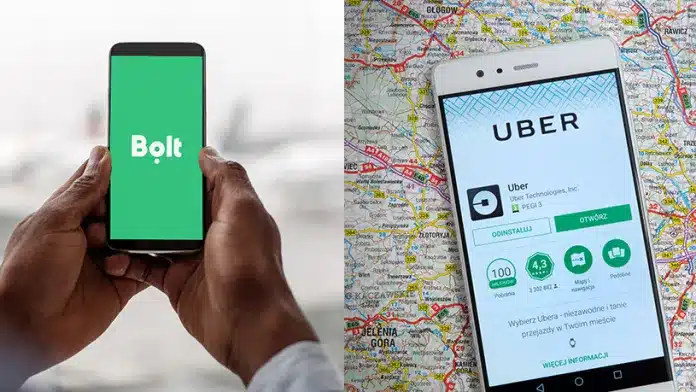In 2019, Temidayo Adetola booked a ride to visit her mother-in-law in Lagos, Nigeria. But a few minutes into the ride, she ended it after the driver made suggestive comments about her body. The incident led her to add “Mrs” to her name on the app.
“There is the respect they accord you when they know you are married,” she told African Arguments.
Adetola is one of several people who have been sexually harassed, robbed, and in some cases killed while using ride-hailing services in Africa.
Riders are not the only ones who face danger on these apps. Drivers have reported being offered sexual favours in return for not paying the fare.
This month, a Bolt driver in Abuja was killed following an argument over payment. These incidents are also not restricted to Africa. Between 2017 and 2018, Uber reported nearly 6,000 cases of sexual assault in the United States, while a woman fatally shot an Uber driver in June 2023.
In response to these issues, ride-hailing companies have launched some features which they hope will help improve the safety of riders and drivers while using the apps. Some of these include a trip sharing option that allows users to share details of their trip with a trusted third party such as a friend or family member. Others include an emergency assist button, real-time selfie verification, and speed limit alerts.
In July 2023, Bolt announced that it would launch an in-app audio recording feature in Nigeria and South Africa. Uber followed suit, announcing an audio recording feature in partnership with Sety, a Nigerian company. Uber has previously rolled out audio recording in some Latin American countries while Didi made audio recording mandatory in 2018.
How does in-app audio recording work?
Audio trip recording can be turned on at any time during the trip by either the driver or the rider. This recording can only be done during the trip and automatically ends once a ride is finished. Once started, recordings cannot be paused or stopped until the trip ends, but where a user receives a call while using the feature, the recording is automatically paused.
The recording is encrypted and cannot be accessed by either the driver or rider, although it is stored locally on the user’s device.
Recordings are automatically deleted after 24 hours, so users who intend to report an incident must do so within 24 hours. Customers who want to report a safety issue can do so while referencing the recording. The recording will then be uploaded to Bolt’s internal system to assist in investigations. However, all recordings under investigation will be deleted after seven days unless a Bolt authorised employee extends the retention period.
Audio recording adds an extra layer of security
Any attempt to improve the safety of riders and drivers on ride-hailing platforms is always welcome. As we pointed out earlier, there’s a real threat of users getting hurt while using these platforms.
For starters, an audio recording feature helps with speedy dispute resolution. In cases such as sexual harassment, determining who is at fault can be difficult as the only available proofs are often the words of the concerned parties. That’s a challenge for anyone, and an audio recording feature can be helpful for the ride-hailing platforms and law enforcement agencies.
Yahaya Mohammed, Bolt’s Country Manager, says that the retention period for recordings can be extended following a formal request by law enforcement agencies.
It could also serve as a deterrent against any unlawful activity. Knowing that the other party can record audio from the trip, riders and drivers act properly because there may be consequences for their actions. It also has the added advantage of boosting users’ confidence.
Concerns remain over user privacy
But while an audio recording adds an extra layer of security for users on these platforms, it also presents questions. The first is about the privacy of the data collected.
“Bolt has a robust privacy program in place which includes conducting privacy impact assessments before launching any new feature to ensure that the rights of its users have been properly considered, and that it is acting in accordance with applicable laws and regulatory requirements.”
To ensure users are aware of the feature and how it works, Mohammed says the company is raising awareness through social media, email, and blog announcements.
Secondly, an audio recording can provide a false sense of security. Where it is evidence in verbal assaults or cases like Adetola’s mentioned earlier, it does not protect riders or drivers in the event of a robbery or rape case as victims are unlikely to use their devices due to the traumatic nature of these events. Mohammed adds that the audio recording feature can be combined with other features for maximum effect.
“This is just one of a number of features available in our in-app safety toolkit for drivers and riders to use if they’re ever feeling uncomfortable during a ride. We will continue to invest in new products and features that continue to improve the safety ecosystem of our app.”
Finally, users are unlikely to think much of it, especially given how ride-hailing companies respond to incidents that happen during rides. Few users who have reported cases while using these apps have gotten any resolution. Often they are referred to law enforcement agencies who give them the run around.
In-app audio recording is a step in the right direction to address safety concerns that arise while using ride-hailing platforms. However, its success depends on how well it is combined with other safety features such as proper background checks. Ride-hailing platforms must also provide prompt and effective responses when cases are reported or risk having users disregard the safety measures they put in place.











